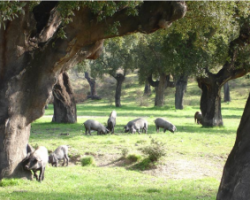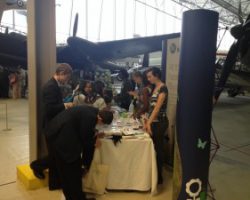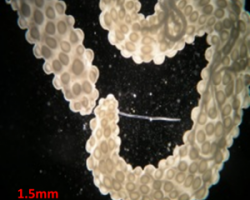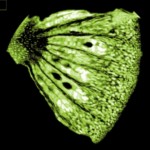Published Articles

What should we eat to save the planet?
Barbara Knowles is senior science policy adviser at the Society of Biology, and loves the landscapes, food and natural treasures created by traditional farming. Hardly a week goes by without another academic paper telling us to eat less meat, and to intensify agriculture sustainably to feed the growing population, protect biodiversity or reduce greenhouse gas emissions. Almost invariably, these calls to save the planet irritate me because not all meat production systems harm the planet, some are an essential part of sustainable mixed farming systems. (I don’t single out this paper for criticism – it’s just the one that came to my attention this week.) When I read that we should eat less red meat, I want the author to explain the environmental, social, economic, health, welfare and ethical differences between different meat production systems. Yes, it’s complicated. But it isn’t helpful to over simplify this message….
Do you want the ‘best job in the world’? Consider science teaching
Sue Howarth, a senior lecturer in science education at the University of Worcester, talks about the challenges and joys of teaching, one of the career pathways that will be explored at Life Sciences Careers Conferences. I’ve been a science and biology teacher for most of my career and I’ve trained many graduates to become science teachers, so I’ve been there and got the t-shirt. Teaching can be the #bestjobintheworld (check this hashtag on Twitter and see how often teachers use it) as it brings numerous rewards. You get to influence young people and correct misconceptions, there will be many ways for you to engage in CPD (continuing professional development), which gives great opportunities to work with associations, such as the ASE, Society of Biology, and the Royal Society of Chemistry, in addition to using Twitter, blogs and teachmeets to find out more about teaching. Even as a trainee, you are likely to help look…

Pacifying Paxman
by Anthony Martinelli Over the course of my life, I have achieved a couple of things on which I reflect with a particular sense of pride. The most recent was an appearance on television last Monday evening, when I had the privilege of captaining my College’s team on University Challenge, a program I have watched for over a decade. Another took place back in 2008, when I was selected to represent the UK at the 19th International Biology Olympiad in India. These two formative experiences are not without their similarities: on both occasions I was part of a team of four students, both rewarded fairly esoteric knowledge and, most significantly, to me they both represented the joy of learning for sake of learning. Ultimately, despite the fact that I smiled quite rarely on camera, I can certainly claim that there are few feelings more satisfying than buzzing in…

Planes, Post-it notes and dinosaurs
Natasha Neill, executive officer at the Society of Biology, writes about attending the Big Bang Fair Eastern on the 8th July 2014 at the Imperial War Museum in Duxford. Seeing (and hearing) amazing biplanes flying past you as you take a quick break from the front lines of public engagement is a pretty good way to spend a Tuesday lunchtime, and with the amazing venue of the Imperial War Museum at Duxford for this years Big Bang Eastern, it was a sight that all exhibitors, judges and guests got to enjoy. Armed with our inflatable dinosaur Trevor, we set off to Cambridge to share our passion for the history of biology with the 2000 attendees at the regional event for the Big Bang Fair. The Big Bang is the largest celebration of science, technology, engineering and maths for young people in the UK and everything is aimed at showing young people (primarily…
How do you give?
by Natasha Neill, Executive Officer at the Society of Biology Many members will be aware that the Society of Biology recently launched our shop, a place to buy your Society branded goodies and celebrate your membership. Another element of the shop, the support it offers us as an organisation, is crucial to our work, but sometimes difficult for a learned society to communicate. Its important for members to understand the wider work that we do. We aim to influence science education policy, ensure that advice on careers is available for students and that the next generation of scientists are inspired not scared, of biology and its wonders. I’m responsible for fundraising at the Society, so started with fact finding and researching; trying to find advice and guidance that would fit our niche. I recently read It ain’t what you give it’s the way that you give it by Caroline Fiennes, who has…

Bumblebees’ gruesome parasites
Guest blog by Sive Finlay, a PhD student from Trinity College Dublin who recently won Best Biology Student at the 2012 SET awards for her undergraduate project Bee populations are in severe decline, an alarming and worrying trend when you consider their vital importance as commercial and ecological pollinators. Research and media attention often focuses on afflictions of honeybees such as the Varroa mite and colony collapse disorder. However, parasites are also major contributors to the plight of the bumble bee. Bumble bee queens spend 6-9 months in diapause, a hibernation-like state which allows them to survive harsh winter weather. My research demonstrated that queens have reduced immune function during this time, leaving them vulnerable to infections and parasitic attack. Sphaerularia is a common yet poorly studied nematode which is found primarily in the Northern hemisphere, infecting up to 50% of queen bumble bees in some areas. Adult female Sphaerularia present in…
The Everyday Brain
by Zara Gladman On Friday 19th October 2012, schools, universities and individuals across the country will attempt to set a record for the World’s Largest Memory Game. Guided by neurobiologist Dr Daniela Peukert, I stuck on my thinking cap and took a journey around this highly complex organ . . . We all have one. Einstein’s was smaller than average. The scarecrow from The Wizard of Oz pined for one. I am of course talking about that squidgy, tofu-like lump of “grey matter”, encased in your skull: the brain. This amazing organ controls just about everything you do, from making a cup of tea to falling in love. The biggest part of the brain, the cerebrum, can be broadly divided into two regions called “hemispheres”. Generally, the right hemisphere controls the left side of the body and vice versa. The right hemisphere is also associated with functions like creativity and…

The Virtual School: calling all biologists!
Guest blog by Frédéric Kastner from The Virtual School The Virtual School’s vision is to create an innovative, free education resource that allows children from all over the world to learn about biology. To help us achieve this we’re asking for support from passionate biologists, whatever their background. You can share your love of biology and help inspire a new generation of scientists by recording a fun 2-3 minute audio presentation. The Virtual School designers will then add images and memory triggers to your voiceover and create an engaging lesson for the KS3 and 4 curricula (that’s 11-14 year olds, and 14-16 years olds). Interested? Here’s how to get involved: You record your 2-3 min audio explanations with our easy-to-use online tool. It is an easy and fun process! Our design team enhances your explanations using effective imagery & other memory triggers to make your lesson even more impactful….

Calling everyone with wacky ideas for the MRI scanner!
In honour of the Biology Week competition calling for ideas of objects to put in an MRI scanner, here is a guest blog from Katy Ordidge. Firstly, let me introduce myself… My name is Katy Ordidge and I am a second year PhD student working in UCL’s Centre for Advanced Biomedical Imaging (CABI). We are a fairly large lab, consisting of 18 PhD students, 6 post-docs, a senior research associate and our director, Mark Lythgoe (@MarkLythgoe). We are actually a bit like a large and rowdy family! The best thing about working in CABI is the people. We try to help each other out as much as possible, for example, by teaching someone to use a piece of equipment, or even being on hand with tea and chocolate when a big experiment goes wrong. Life in a research lab can be quite hard going at times. Sometimes you have to spend…
